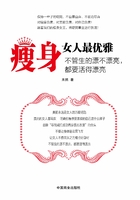Well, the ornate and excellent Temple held that "the Epistles of Phalaris have more race, more spirit, more force of wit and genius, than any others he had ever seen, either ancient or modern." So much for what Bentley calls Temple's "Nicety of Tast." The greatest of English scholars readily proved that Phalaris used (in the spirit of prophecy) an idiom which did not exist to write about matters in his time not invented, but "many centuries younger than he." So let the Nicety of Temple's Tast and its absolute failure be a warning to us when we read (if read we must) German critics who deny Homer's claim to this or that passage, and Plato's right to half his accepted dialogues, on grounds of literary taste. And farewell, as Herodotus would have said, to the Letters of Phalaris, of Socrates, of Plato; to the Lives of Pythagoras and of Homer, and to all the other uncounted literary forgeries of the classical world, from the Sibylline prophecies to the battle of the frogs and mice.
Early Christian frauds were, naturally, pious. We have the apocryphal Gospels, and the works of Dionysius the Areopagite, which were not exposed till Erasmus's time. Perhaps the most important of pious forgeries (if forgery be exactly the right word in this case)was that of 'The False Decretals.' "Of a sudden," says Milman, speaking of the pontificate of Nicholas I. (ob. 867 A.D.), "Of a sudden was promulgated, unannounced, without preparation, not absolutely unquestioned, but apparently over-awing at once all doubt, a new Code, which to the former authentic documents added fifty-nine letters and decrees of the twenty oldest Popes from Clement to Melchiades, and the donation of Constantine, and in the third part, among the decrees of the Popes and of the Councils from Sylvester to Gregory II., thirty-nine false decrees, and the acts of several unauthentic Councils." "The whole is composed," Milman adds, "with an air of profound piety and reverence." The False Decretals naturally assert the supremacy of the Bishop of Rome.
"They are full and minute on Church Property" (they were sure to be that); in fact, they remind one of another forgery, pious and Aryan, 'The Institutes of Vishnu.' "Let him not levy any tax upon Brahmans," says the Brahman forger of the Institutes, which "came from the mouths of Vishnu," as he sat "clad in a yellow robe, imperturbable, decorated with all kinds of gems, while Lakshmi was stroking his feet with her soft palms." The Institutes took excellent care of Brahmans and cows, as the Decretals did of the Pope and the clergy, and the earliest Popes had about as much hand in the Decretals as Vishnu had in his Institutes. Hommenay, in 'Pantagruel,' did well to have the praise of the Decretals sung by filles belles, blondelettes, doulcettes, et de bonne grace. And then Hommenay drank to the Decretals and their very good health. "Odives Decretales, tant par vous est le vin bon bon trouve"--"Odivine Decretals, how good you make good wine taste!" "The miracle would be greater," said Pantagruel, "if they made bad wine taste good." The most that can now be done by the devout for the Decretals is "to palliate the guilt of their forger," whose name, like that of the Greek Macpherson, is unknown.
If the early Christian centuries, and the Middle Ages, were chiefly occupied with pious frauds, with forgeries of gospels, epistles, and Decretals, the impostors of the Renaissance were busy, as an Oxford scholar said, when he heard of a new MS. of the Greek Testament, "with something really important," that is with classical imitations. After the Turks took Constantinople, when the learned Greeks were scattered all over Southern Europe, when many genuine classical manuscripts were recovered by the zeal of scholars, when the plays of Menander were seen once, and then lost for ever, it was natural that literary forgery should thrive. As yet scholars were eager rather than critical; they were collecting and unearthing, rather than minutely examining the remains of classic literature.
They had found so much, and every year were finding so much more, that no discovery seemed impossible. The lost books of Livy and Cicero, the songs of Sappho, the perished plays of Sophocles and AEschylus might any day be brought to light. This was the very moment for the literary forger; but it is improbable that any forgery of the period has escaped detection. Three or four years ago some one published a book to show that the 'Annals of Tacitus'
were written by Poggio Bracciolini. This paradox gained no more converts than the bolder hypothesis of Hardouin. The theory of Hardouin was all that the ancient classics were productions of a learned company which worked, in the thirteenth century, under Severus Archontius. Hardouin made some exceptions to his sweeping general theory. Cicero's writings were genuine, he admitted, so were Pliny's, of Virgil the Georgics; the satires and epistles of Horace; Herodotus, and Homer. All the rest of the classics were a magnificent forgery of the illiterate thirteenth century, which had scarce any Greek, and whose Latin, abundant in quantity, in quality left much to be desired.
Among literary forgers, or passers of false literary coin, at the time of the Renaissance, Annius is the most notorious. Annius (his real vernacular name was Nanni) was born at Viterbo, in 1432. He became a Dominican, and (after publishing his forged classics) rose to the position of Maitre du Palais to the Pope, Alexander Borgia.
With Caesar Borgia it is said that Annius was never on good terms.














